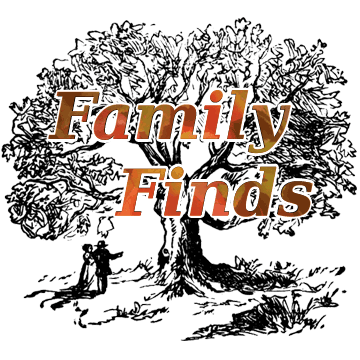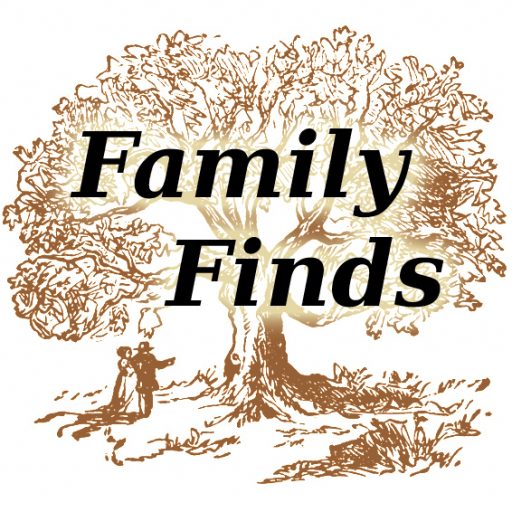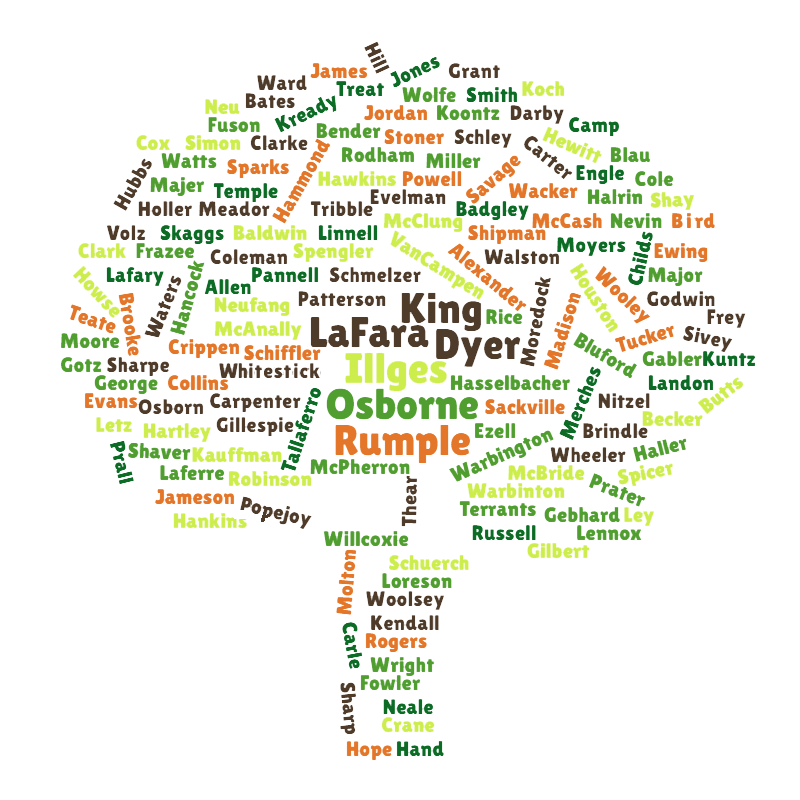
Researching Family Legends
Family legends are fun to share, especially with other family members when gathered together for an occasion. When stories are shared between the generations, sometimes the details are lost. Even with further questioning. Details can be scarce if the legend is only an oral history rather than one with documents, or at least chronicled by someone close to the event. I wish my ancestors all kept diaries, too bad they did not have a blog for posting their stories! I enjoy researching family legends and finding records to validate the tales.
Sometimes Legends are True
A family legend that impressed me when I was a child was about my great uncles, Lou and Roll Osborne. The story went the boys were placed in an orphanage when their mother died in 1883, and their father soon married one of the teachers at the orphanage. The fact the orphanage teacher was my great grandmother made this story both romantic and shocking. I researched this family legend several years ago and found it to be true. Some of the details turned out to be more shocking and more romantic than the story shared at family gatherings. I previously posted about this legend, and some of the surprises I uncovered. [1, 2]
Sometimes Legends are False
I read a family legend about one of my 3rd great grandfather’s being witness to the bombardment of Ft. McHenry in 1814. I researched this legend and discovered it was probably false. My 3rd great grandfather’s service during the War of 1812 placed him nowhere near Baltimore in 1814. I wrote in more detail about this legend and my research last year for the prompt “Fire”. [3]
Do Your Research
Family legends can be fun to share and I also think they are fun to research. Whether a family legend turns out to be true or false, the records and details discovered can be even more interesting. Census and vital records are obvious places to look for corroborating evidence. But I have found some of the less obvious sources to be useful.
Research Tips
- Seek out other family members to find out what they know about the family legend. A cousin you do not converse with often may have a completely different account of the story.
- Consider mapping your ancestors’ life to discover if they were in proximity to the events in question.
- Depending on the legend, DNA may be helpful to determine the validity of a family story. I used DNA to corroborate a family legend about the paternal parentage of a 2nd great grandfather. I wrote about that research last year for the prompt “Disaster”. [4]
- Old newspapers may hold some answers if your family legend is at all newsworthy. Remember, a hundred years ago who you ate Sunday dinner with was often considered newsworthy.
- City directories can be useful, particularly years between the census. Depending on when the directory was published, you may be able to discover neighbors, occupation, employer address, local businesses, city officials, clubs and fraternal orders, street name changes, maps, and phone numbers.
Conclusion
The next time you hear or share a family legend, consider what records are needed to document the validity of the story and make a plan to do the research. By the way, it could be a great way to get your family interested in genealogy.





0 Comments